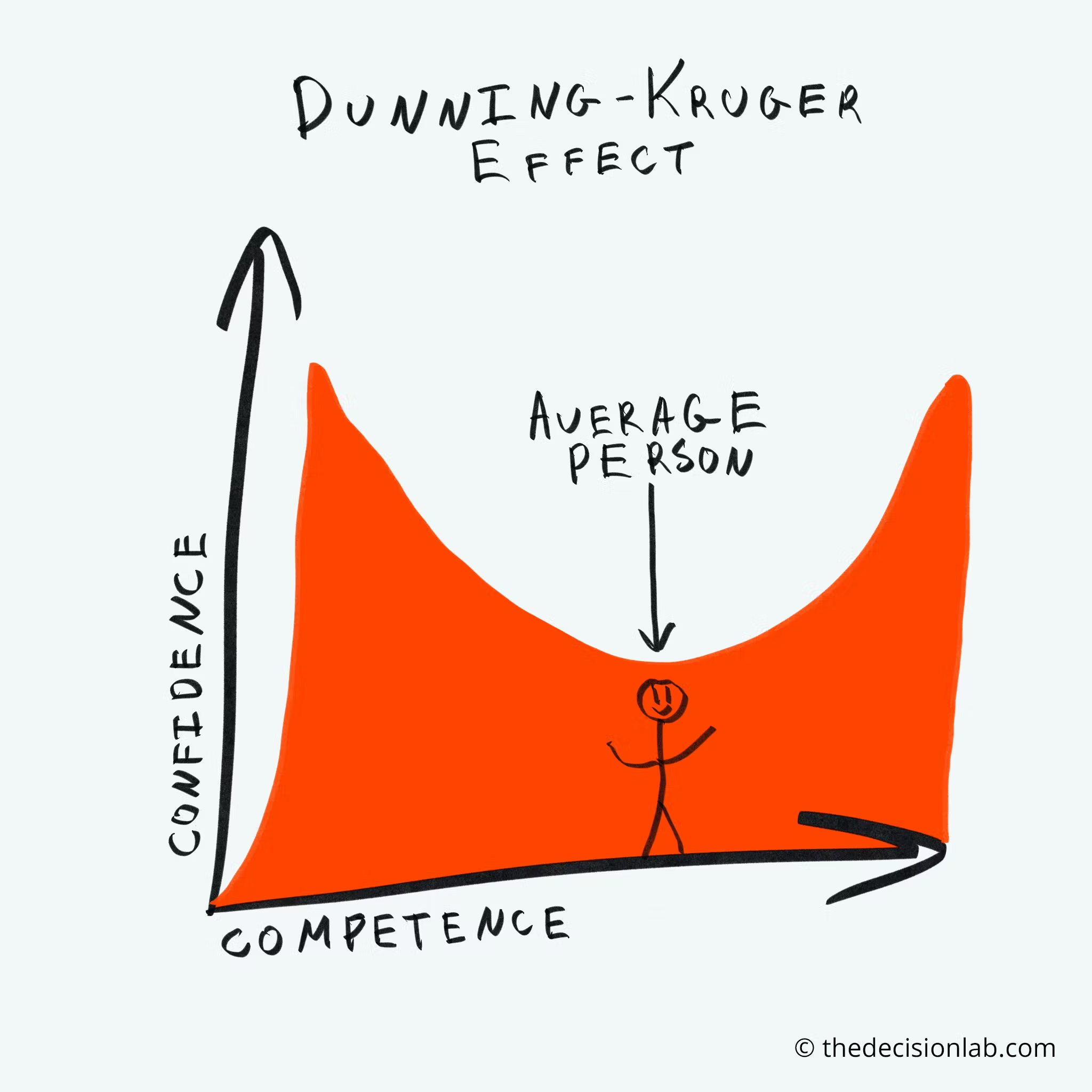Dunning Kruger Effect
🧶 Tags:: #Fleeting_Notes #systems #🌱
Resources:: Fallacies MOC
Links:: thedecisionlab
2022-06-08 - 15:14
What is the Dunning-Kruger Effect?
The Dunning-Kruger effect effect occurs when a person’s lack of knowledge and skills in a certain area cause them to overestimate their own competence. By contrast, this effect also causes those who excel in a given area to think the task is simple for everyone, and underestimate their relative abilities as well.

Where this bias occurs
Imagine you and your friends decide to try something new—separately, you all start learning Spanish. Within a few days, you can say 10-15 sentences. You’re a bit disappointed, and believe you should be able to say more by now. To you, the language is quite simple, but having a good grip on it causes you to think it is simple for everyone, and that you therefore should have done more.
Your friend, by contrast, has learned just a few words. He is amazed by his progress. He doesn’t yet have the knowledge and skills to know that he’s actually pronouncing those words wrong, and forming grammatically incorrect sentences with them. He’s learned the least in the group, but his lack of knowledge prevents him from understanding his own mistakes. Moreover, his lack of access to comparison causes him to overestimate his relative ability. His ignorance of how far others, like yourself, have come, keeps him thinking he’s excelling, when he is actually learning at below-average speed.
Individual effects
As a result of the Dunning-Kruger effect, you may not know what you’re good at, because you assume that what comes easily to you also comes easily to everyone else. You are therefore robbed of the ability to spot your own specialities and talents.
Moreover, when you excel at what is challenging to you, you might accidentally fall prey to the belief that that thing is where your talents lie. In reality, you may just be a below-average performer finally approaching average levels.